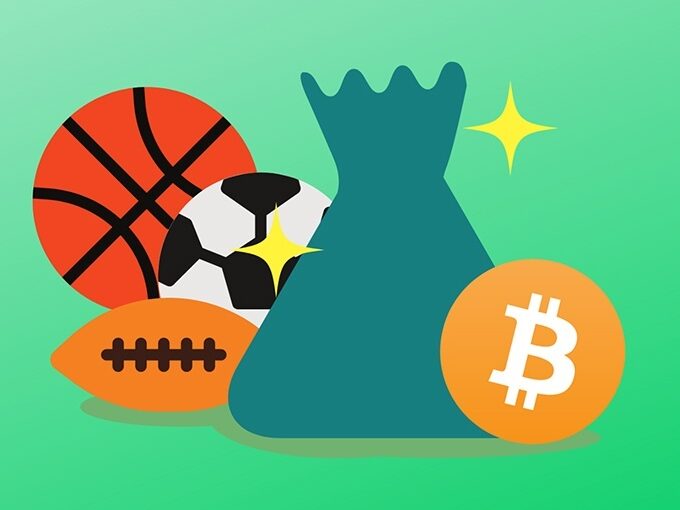What is wash trading crypto?
Wash Trading is when an investor or trader buys and then sells the same securities multiple times in a short time to deceive other market participants regarding an asset’s liquidity or price.
Wash trading, as the name suggests, is when an asset is bought and sold within a very short period of time. Market manipulators use wash trading to influence the price and trading activity of an asset. One or more of the colluding agents will typically execute a series of trades without taking into account market risks. This results in no change to the antagonistic agent’s original position.
Cryptopunks was a Larva Labs NFT Project that witnessed a “wash” on Ethereum’s blockchain in October 2021. The cryptocurrency CryptoPunk 9998 was purchased for 124.457 Ether ( Ethereum). The ETH used for purchasing the NFT was transferred by the seller to the buyer, who then returned the loan to Larva Labs to repay the loan. This effectively makes it a Flash Loan and an example of NFT money laundering.
Wash trading can be a motivation for traders or firms to engage in. The purpose of wash trading could be to encourage buying to increase prices or discourage selling to lower prices. To lock in a capital loss, a trader might conduct a wash sale. Then, he or she will repurchase the asset at a lower cost basis to obtain a tax refund.
Also read: Best AI Trading Software for Traders
How does a wash trade work?
What is the intent of the parties to the wash trade? The result of such a transaction allows wash trading to fulfill its purpose.
Wash trades are when investors buy and sell tokens of the exact same asset simultaneously. Wash trades are defined differently. They take into account the objective or intent of the investor and the outcome of the transaction.
Investors and traders should not have an ulterior motive to wash trade. They should have purchased and sold assets that share common beneficial ownership within a reasonable time. Beneficial ownership is the possession of accounts by the same person, company, or organization.
Trades between accounts that have common beneficial ownership may be of interest to financial regulators as they could indicate wash trading activity. Wash trades do not always need to involve actual transactions. They can also be made by investors or dealers who appear to have conducted the transaction on paper but no assets were exchanged.
What makes wash trading illegal?
Traditional finance prohibits wash trading. In the decentralized world of nonfungible tokens, however, the legality of wash trading is still to be established.
Some governments have resisted NFT despite the absence of NFT legislation and classification. Bithumb, a South Korean cryptocurrency exchange, was charged in 2018 with facilitating wash trading in excess of $250 million in phony volume.
Bloomberg reported on April 5, 2022, that CryptoSlam’s NFT tracker data revealed that wash trades account for $18 billion or 95% of total trade volume on The NFT marketplace called LooksRare.
Although crypto wash trading is banned in certain jurisdictions, it is difficult to find criminals due to the decentralized nature of cryptocurrencies. Blockchain-powered assets are able to be traded anonymously unlike traditional financial instruments like stocks that have been verified according to Know Your Customer standards. This creates a risk for wash trading. This is due to inaccurate volume and price statistics. Authorities cannot eliminate this risk unless they decide which jurisdiction is responsible.
What are the NFTs used to launder money?
NFT crimes like money laundering and scams involving wash trading occur when NFT sales target “self-financed” addresses.
It’s not hard to see why money laundering is a problem in the art world. Because of the history of NFTs and the pseudonymity associated with crypto assets, many people wonder if they are susceptible to similar abuses. Can you use NFTs to launder money?
Yes, fraudsters, malware operators, as well as Chatex, use NFTs to launder money. Chatex, a cryptocurrency bank, aims to make crypto transactions simple, secure, and easy for many customers while still offering a functional advantage over traditional banking.
Although money laundering in physical art can be difficult to quantify, NFT money laundering can be more accurately estimated by the inherent openness of blockchain. Money laundering can be found in NFT markets.
Chainalysis tracked wash trading scams by looking at NFT sales made to addresses that were “self-funded,” that is, the sales were either funded by the original selling address or the selling address.
This strategy was used to discover hundreds of wash trades. Chainalysis found that one user was the most active wash dealer and had made 830 sales at addresses they self-financed.
Also read: How to Make Money With NFT
Why is wash trading such a problem in the NFT space
NFT Wash Trading is a problem that investors, collectors, traders, and the global community face. This happens because the participants use less liquid tokens to manipulate an asset’s price.
As investors are forced to rely upon measurable statistics, it has made due diligence more difficult. This has led to poor investment decisions. Specialists must investigate discrepancies in data to prevent NFT frauds and encourage NFT investment. NFT crime is the most severe. To combat decentralization, regulators and advocates of mainstream financial services may now resort to washing trading.
The same applies to traders and collectors. They are not able to make informed decisions. It is easy for traders and collectors to make snap decisions when they are misled by history or deceptive facts about a piece of art. Is there a way to identify it, especially with wash trading affecting the NFT markets?
New coins are not subject to volume or price history when they are released onto the market. Developers and other insiders could participate in wash trading to mislead participants about the coin’s true value. Avoid investing in these types of projects.
Many NFTs do not have any investor or trading volume. NFT owners are able to participate in wash trading to lure naive buyers to purchase the NFT at a high price. Avoiding newly issued small-cap cryptos or NFTs is the best way to avoid wash trading.
To avoid being a victim to wash trading, traders must choose more well-established cryptocurrencies with higher volumes. Scammers will have to manipulate the market more the larger it is. It is extremely difficult to commit crimes such as wash trading when there are already established cryptos like Ethereum ( BTC ) and Bitcoin ( ).










Leave a comment